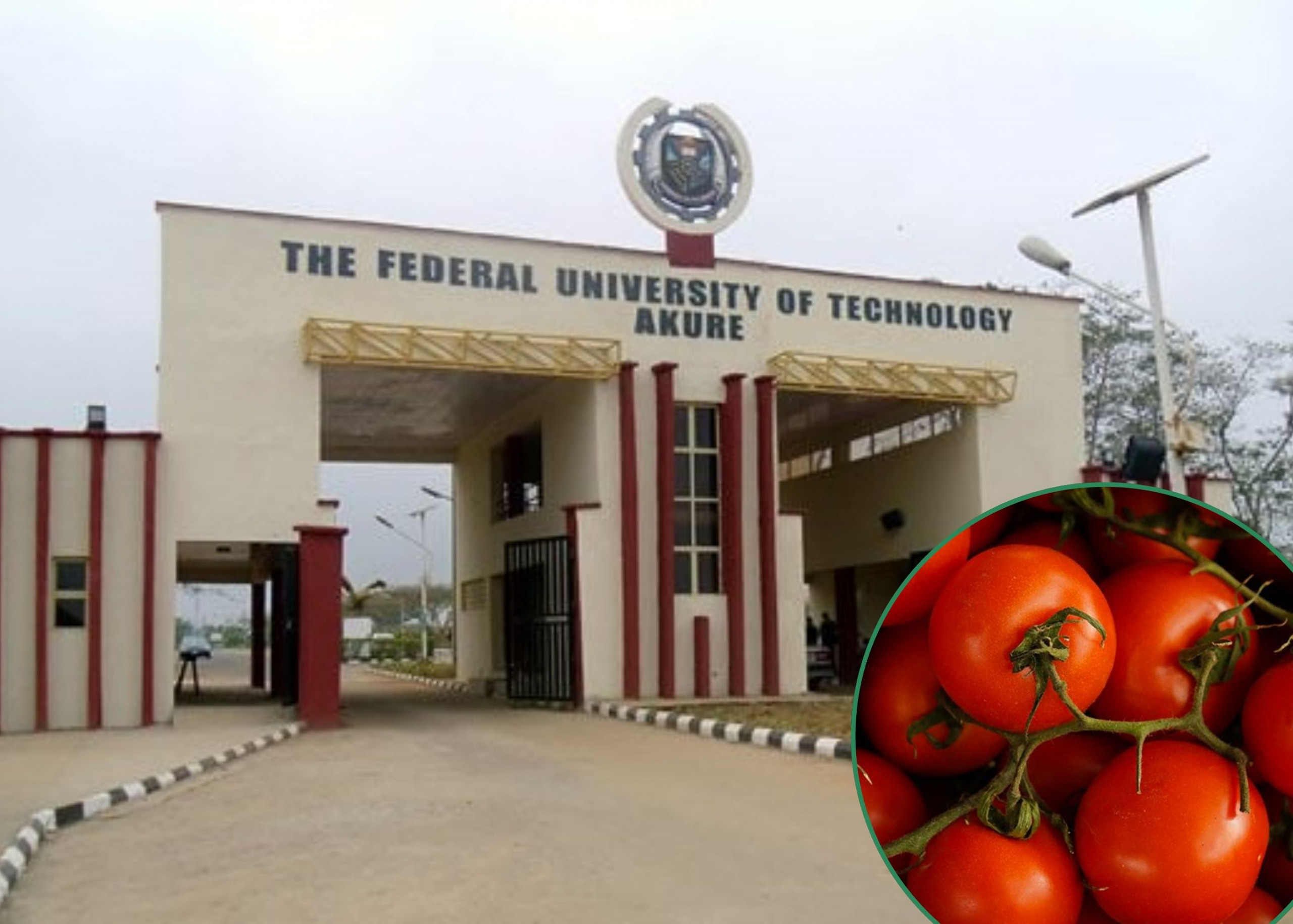News in brief:
– EVA-F1 tomatoes, a high-yield and long-lasting variety, is being successfully cultivated at FUTA’s teaching and research farm.
– This project aims to boost Nigeria’s food security and provide practical training to farmers on greenhouse tomato production.
The Eva F1 Tomato (EVA-F1) is being grown by the Federal University of Technology, Akure (FUTA) teaching and research farm. According to a report, the project is massive.
This variety is known for its unique qualities including extended shelf life (staying fresh for two weeks after harvest), higher resistance to cracking, and it is able to grow five times bigger than the commonly available ones. For paste production, it can produce four times more!
Professor Oluwatooyin Oludahunsi, the dean of the institution’s agriculture and agricultural technology faculty, revealed that they had been growing the hybrid variant in green houses. Already, some had been harvested and sold to members of the institution’s community and people living around the cmpus.
FUTA’s Vice Chancellor, Professor Adenike Oladiji, while receiving some tomatoes, lauded the teaching and research farm project. She also commended the faculty for trying to share its knowledge by organising a practical training for farmers and agroprenurs on producing the hybrid tomato variant in greenhouses.
Professor Oladiji added that the initiative would boost Nigeria’s drive for food security while encouraging the farm to sustain the production.
The institution first acquired the EVA-F1 in 2017 from a collaboration with Israel. Then, the seeds were carefully nurtured in FUTA’s greenhouse under a controlled environment.
Experts working on the farm say that the tomatoes will mature in about two months in a green house after transplanting making it 90 days from nursery to maturity and harvesting could continue for another 3 months. They claim that with good management and practices, there is a guarantee of between 1-2 tons of tomato from one production.
Additionally, interested members of the public and farmers are enjoined to contact the research farm for details on how to buy the seed as well as guidance on planting in green houses and open farms.
This move is another evidence of the capacity that agricultural institutions have in improving the country’s food security when channeled correctly.



